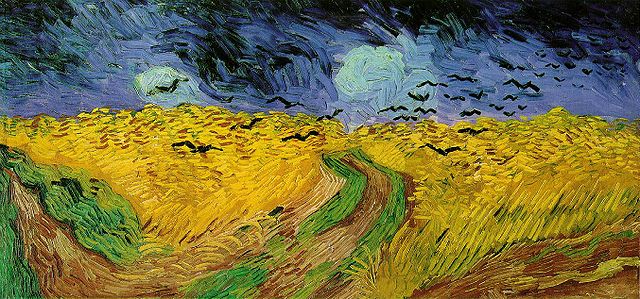For the duende, the Time of Sadness describes the period from the birth of Bar up to the arrival of the Sea People in the Land, a span of about 50 years.
The birth of Bar and the mark of the duende
Bar was the half-duende, half-human son of Baikal – a prince of the duende who had become a katao – and his human wife, Celana.
It was the midwife who first noticed the distinctive mark of the duende on Bar, which was the absence of the shallow channel running from the base of the nose to the midpoint of the upper lip. On discovering this unique feature, the midwife had gone directly to the Chief of the village, who then denounced Baikal as a duende.
Because he was, by then, one of the katao and had mostly forgotten his lineage, Baikal challenged the chief to a duel, to avenge his honor. Celana, who some say would have been able to soother her husband’s rage, lay unconscious after the difficult birth and was unaware of these events.
At the appointed hour of the duel, Baikal and the chief met on the hill of battle and struggled against each other for a long time. The two were evenly matched and the pitch of the combat passed from one to the other, with neither getting the decisive advantage until, in frustration, Baikal howled at the sky and in so doing awakened the power of a prince of the duende.
To those watching from the foot of the hill, it seemed that lightning had come down from the sky in response to Baikal’s scream, and struck the chief on the crown of his head. And in the moment of his adversary’s death, Baikal remembered what he was and realized that he had killed a human unjustly.
Stricken with remorse, Baikal carried the chief’s body down the hill as the assembled villagers watched. Baikal carried the body back to the village and laid it at the foot of the chief’s ancient mother, who wept inconsolably.
Clutching the body of her slain son to her breast, the old woman fixed a baleful glare on Baikal and, with a quavering voice said, “duende.”
Baikal fled toward his home and soon almost the entire village had turned out and gave chase. When they arrived at Baikal’s dwelling, they found it empty. In anger, the villagers burned down the house.
The following morning, the villagers awoke to the realization that many of their neighbors had mysteriously disappeared during the night. Word soon spread of the birth of the half-breed Bar, and of what happened to Baikal and the chief. From that time forward, the people began to regard strangers with fear and suspicion, always checking to see if their upper lips bore the mark of the duende.
The Time of Sadness
News of the killing of the chief reverberated among the duende, for two reasons. First, because it was the first time in more than a hundred years one of their kind slain a man in anger; and second, because it shocked the duende into the realization that Co-Existence was becoming impossible.
Ar-Bathal, the oldest and most powerful of the noble duende decreed that relationships with the humans be gradually reduced. Others in the Councils argued for a more drastic separation, but Bathal held firm. He argued that the bond between men and duende was strong, although he admitted that he did not as yet understand why. A sudden separation would weaken both races, Bathal argued, and might conceivably lead to the complete extinction of one or the other.
Aru-Bathal rose to argue against Ar-Bathal, and their debate, which lasted four days and four nights is recorded in the Proceedings of the 4th Duende Council, written by Gulok the Scholar. In the end, Aru-Bathal grudgingly accepted his brother’s wisdom and the duende began the long process of disentangling themselves from the humans they had come to deem their friends.
As it was in their nature, the duende did not see this turn of events as a betrayal, only a transition from one state to another, and thus harbored no ill-will. Many, in fact, believed that there would come a time when there would be a return to co-existence.
Ar-Bethal, however, feared otherwise. Unknown to all but a select few, he began to prepare for the time when the separation from men would have to be more permanent.
After the Council, he gathered the most powerful princes of the duende and began a magical working unrivaled to this day in scope and importance. Ar-Bethal began building bridges to Marte.

